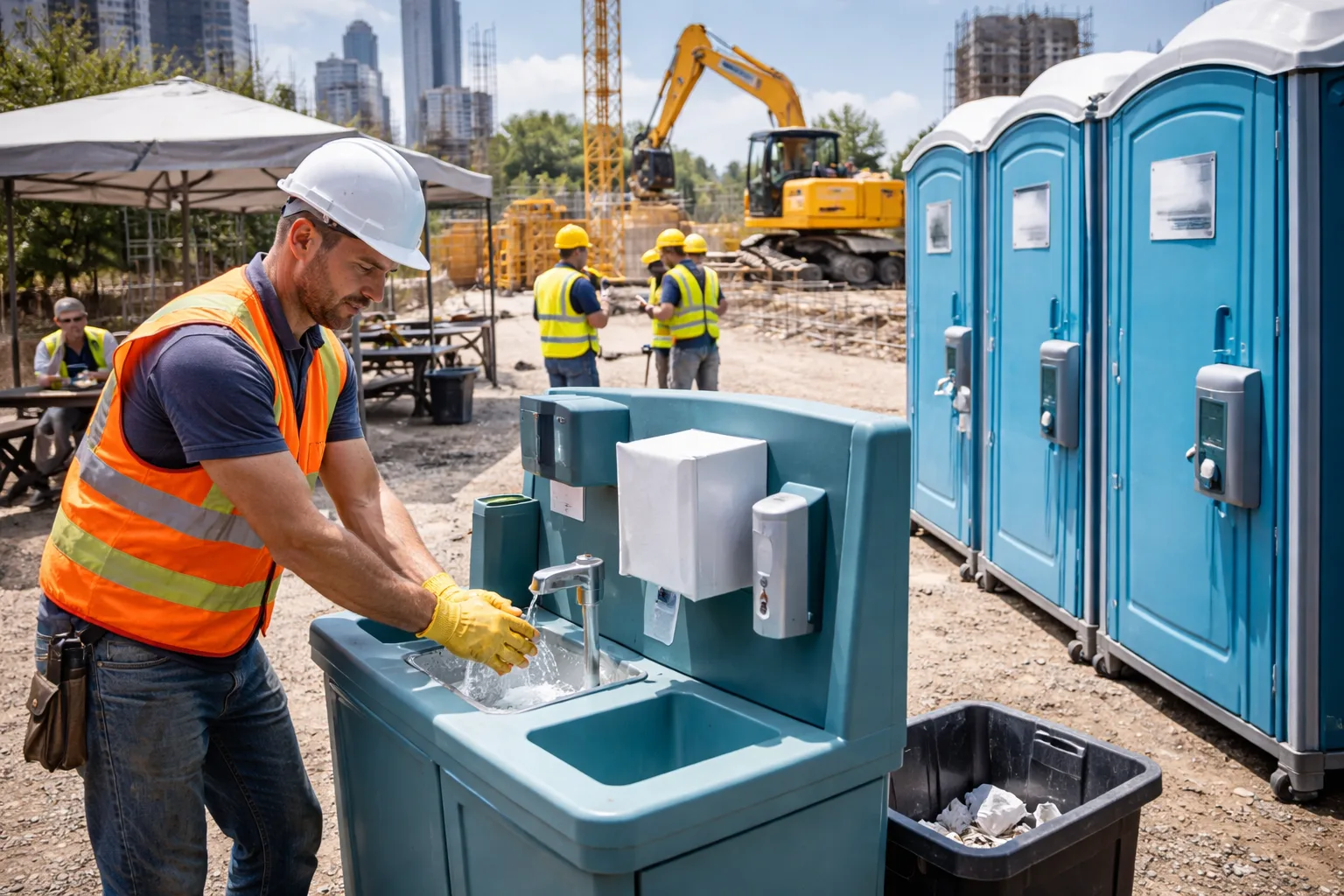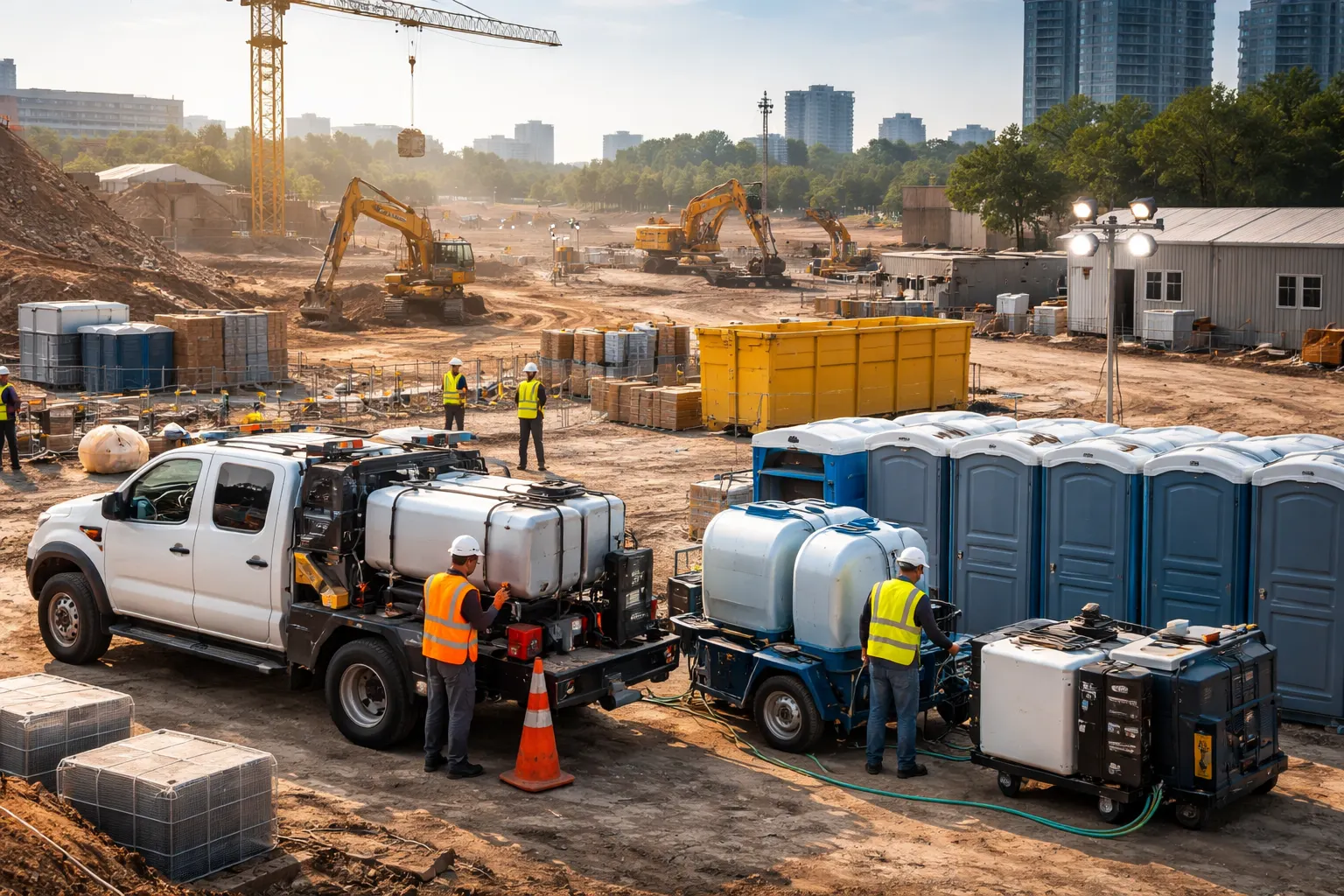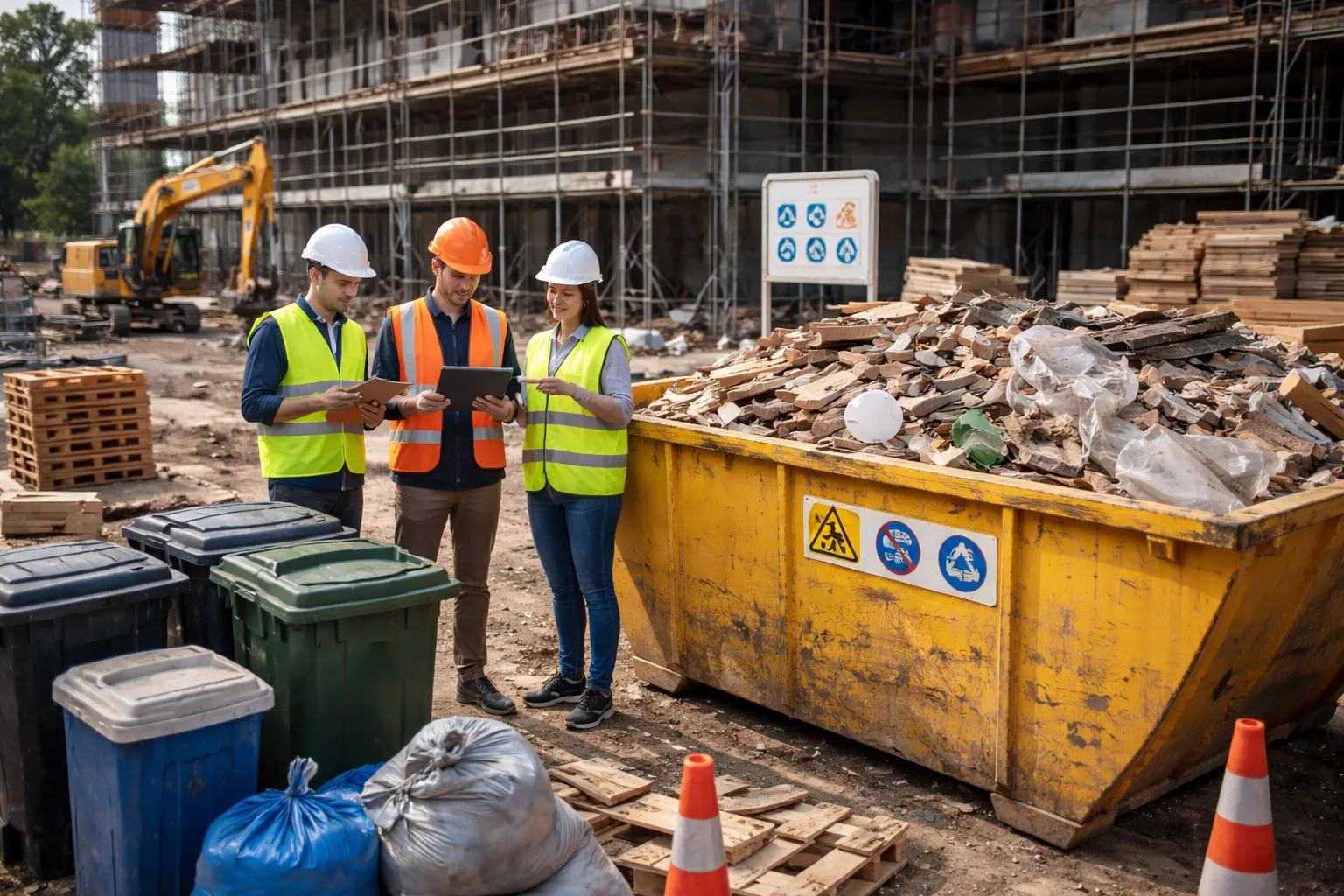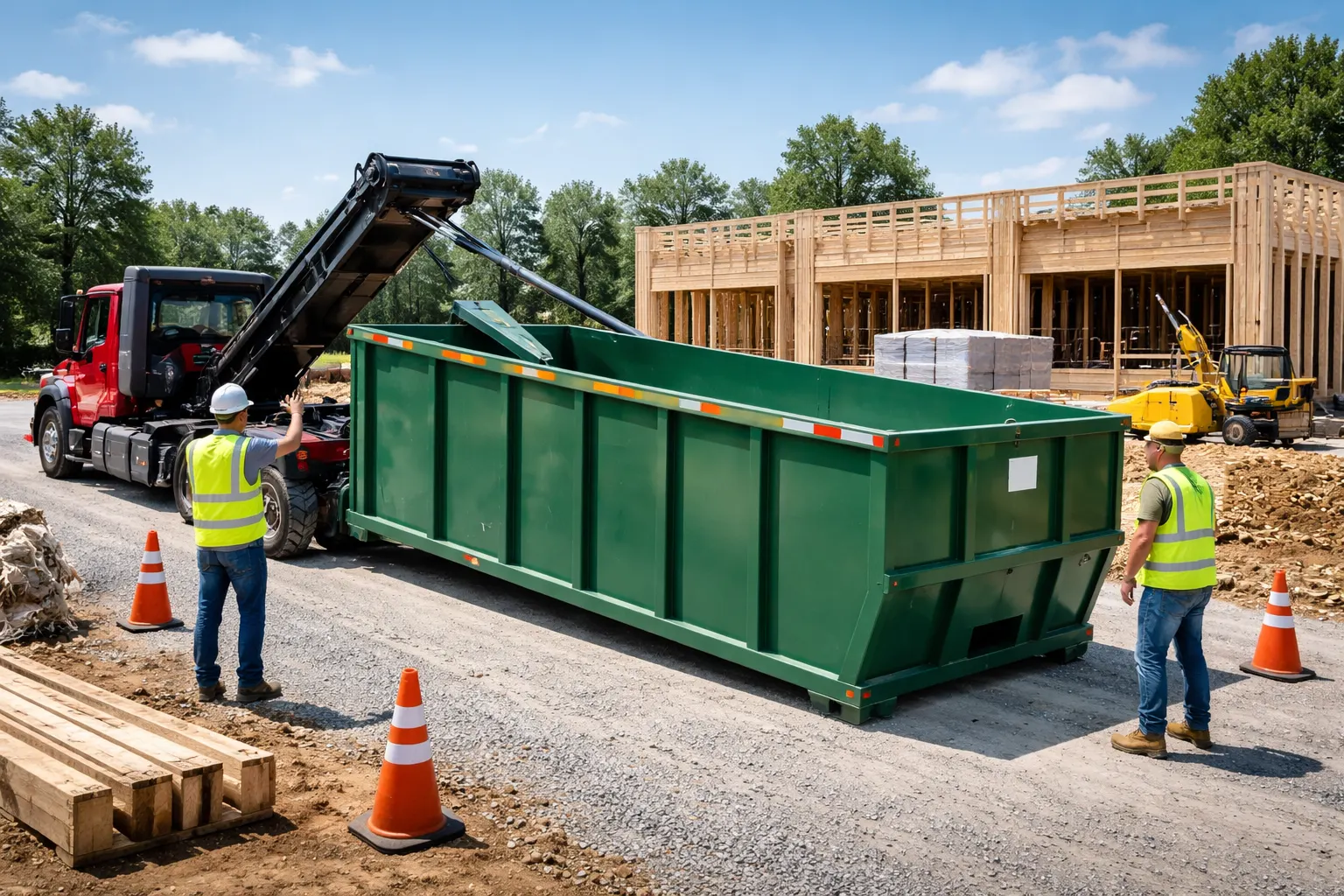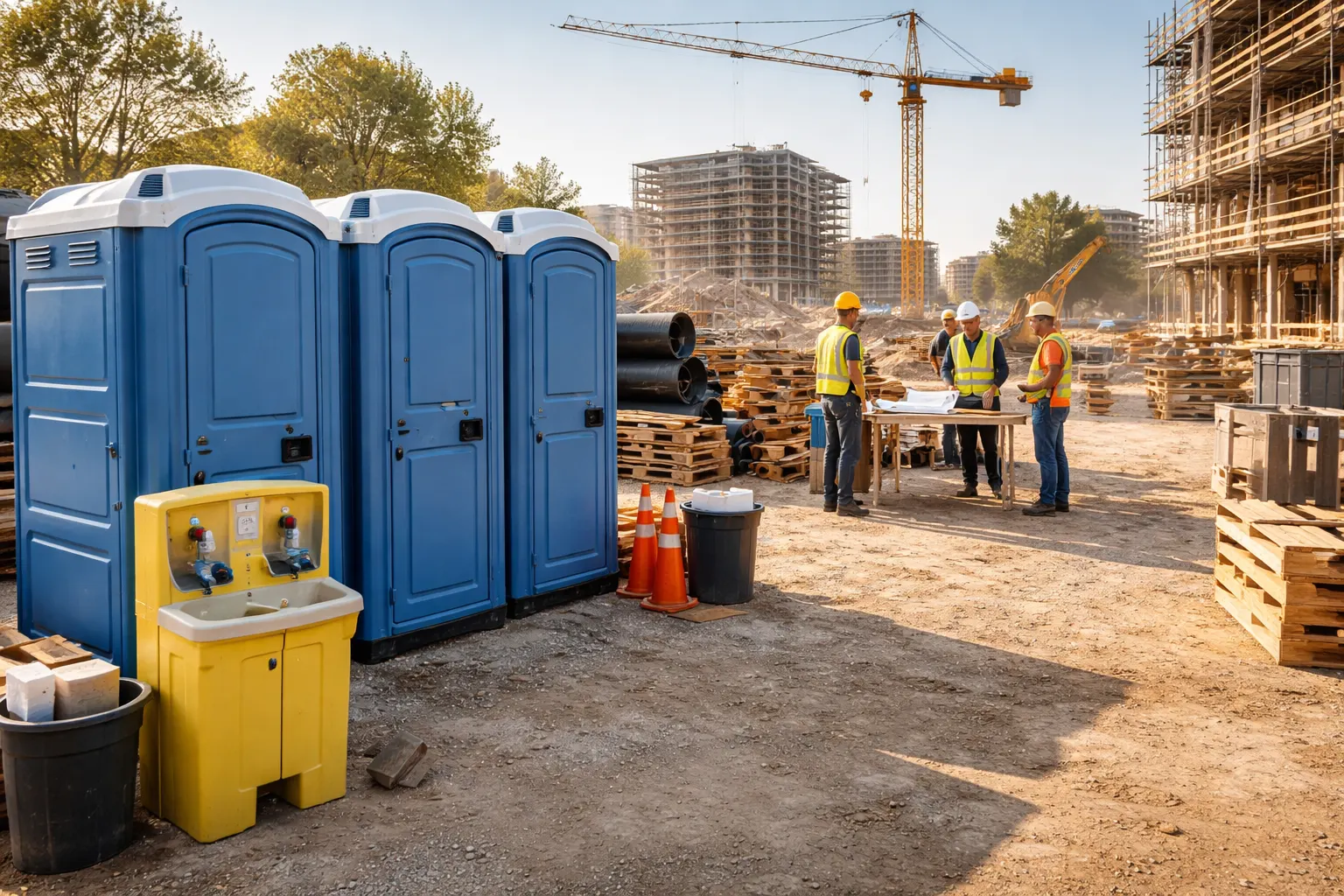In today’s rapidly changing world, the importance of sustainable waste management cannot be overstated. As industries evolve, so does the need for effective waste reduction strategies to minimize environmental impact. Every job site, whether a construction zone, manufacturing plant, or office space, plays a crucial role in this effort. By adopting sustainable waste management practices, businesses can not only contribute to environmental protection but also realize economic benefits. The integration of these practices is pivotal for businesses striving to maintain competitiveness while adhering to increasing environmental regulations.
Moreover, sustainable waste management is more than a regulatory requirement; it represents a commitment to corporate social responsibility. Companies that prioritize these practices demonstrate a forward-thinking approach that resonates with environmentally conscious consumers and clients. As public awareness around environmental issues grows, businesses are increasingly under scrutiny to prove their dedication to sustainability. Thus, effective waste management not only benefits the environment but also enhances a company’s reputation and brand value, fostering trust and loyalty among stakeholders.
The Importance of Sustainable Waste Management

Sustainable waste management involves more than just disposing of waste; it encompasses a series of strategies and practices aimed at reducing, reusing, and recycling materials. These practices are essential in maintaining ecological balance and ensuring resource conservation for future generations. By managing waste sustainably, companies can reduce their carbon footprint, promote sustainable resource use, and encourage the circular economy, where materials are kept in use for as long as possible.
Environmental Benefits
One of the primary advantages of sustainable waste management is its positive impact on the environment. By reducing the amount of waste sent to landfills, we can decrease the production of harmful greenhouse gases like methane. Furthermore, recycling reduces the need for raw materials, thus conserving natural resources and reducing energy consumption associated with the extraction and processing of these materials. This helps preserve biodiversity by minimizing habitat destruction and pollution.
In addition, sustainable waste management can significantly reduce water and soil pollution. When waste is improperly disposed of, it can lead to leachate formation, which contaminates water bodies and soil. By adopting comprehensive recycling and waste reduction practices, the risk of such contamination is greatly diminished. This leads to healthier ecosystems and protects human health by ensuring cleaner air and water quality.
Economic Advantages
Implementing sustainable waste management solutions can also lead to significant cost savings for businesses. Recycling and waste reduction strategies often result in lower disposal costs, as less waste ends up in landfills. Additionally, businesses can generate revenue by selling recyclable materials and can benefit from tax incentives and grants for adopting green practices. These financial incentives can significantly offset the initial costs of setting up sustainable waste management systems.
Furthermore, sustainable waste management can drive innovation and operational efficiency. By rethinking waste as a resource, businesses can uncover new opportunities for product development, cost reduction, and process improvements. This shift not only enhances profitability but also prepares businesses to meet future regulatory requirements and market demands, ensuring long-term sustainability and competitiveness.
Key Waste Reduction Strategies
To effectively manage waste on job sites, businesses should consider implementing the following waste reduction strategies. These strategies not only minimize environmental impact but also streamline operations and reduce costs, creating a win-win scenario for businesses and the planet.
Source Reduction
Source reduction involves minimizing waste before it is created. This can be achieved by:
- Opting for products with minimal packaging
- Choosing reusable or refillable items
- Implementing efficient inventory management to prevent over-ordering
By focusing on source reduction, businesses can significantly cut down on the volume of waste generated, leading to lower disposal costs and reduced environmental impact. Furthermore, adopting practices such as digital documentation over paper can significantly reduce material usage and waste. Encouraging suppliers to provide goods in bulk and using durable, multi-use products can further enhance source reduction efforts.
Reuse and Repurpose
Encouraging the reuse and repurposing of materials is another effective strategy. For instance, construction sites can repurpose leftover building materials for future projects or donate them to organizations in need. Similarly, office spaces can implement programs to reuse office supplies, reducing the need for new purchases. Establishing partnerships with organizations that specialize in repurposing materials can further amplify these efforts.
Moreover, businesses can create a culture of creativity and innovation by encouraging employees to think of unique ways to repurpose materials. By hosting workshops or brainstorming sessions, companies can foster a collaborative environment where waste reduction becomes a shared goal. This not only reduces waste but also engages employees in meaningful sustainability initiatives.
Recycling Programs
Establishing a robust recycling program is crucial for any job site committed to sustainable waste management. This involves:
- Placing clearly labeled recycling bins throughout the site
- Educating employees on what can and cannot be recycled
- Partnering with local recycling facilities to ensure proper processing
In addition to these basic steps, businesses should regularly review and update their recycling programs to incorporate new materials and adapt to changing regulations. By conducting regular waste audits, companies can identify areas for improvement and track progress over time. Partnering with third-party recycling experts can also provide valuable insights and resources to optimize recycling efforts.
Implementing Sustainable Waste Management Solutions
To successfully integrate sustainable waste management practices, businesses must take a strategic and systematic approach. This involves understanding their current waste management practices, setting clear goals, and continuously engaging employees in sustainability efforts.
Conduct a Waste Audit
A waste audit involves analyzing the types and quantities of waste generated on a job site. This information is vital in identifying areas for improvement and tailoring waste management strategies to suit specific needs. By understanding waste streams, businesses can develop targeted strategies that address the most significant sources of waste and maximize resource recovery.
Conducting regular waste audits also enables businesses to measure the effectiveness of their waste management strategies. By comparing data over time, companies can identify trends, track progress, and make informed decisions about future sustainability initiatives. This iterative process ensures continuous improvement and adaptation to changing circumstances.
Develop a Waste Management Plan
Based on the findings from the waste audit, businesses should develop a comprehensive waste management plan. This plan should outline goals, strategies, and responsibilities for waste management efforts. It should also include a timeline for implementation and regular reviews to assess progress. A well-structured plan provides a clear roadmap for achieving sustainability goals and ensures accountability across the organization.
Additionally, businesses should integrate waste management goals into their broader corporate sustainability strategies. By aligning waste management with other environmental and social initiatives, companies can create a cohesive approach that maximizes impact and fosters a culture of sustainability throughout the organization.
Engage and Educate Employees
Employee engagement and education are critical components of successful waste management. Businesses should:
- Provide training sessions on sustainable practices
- Encourage employee feedback and suggestions
- Recognize and reward teams or individuals who contribute to waste reduction goals
By fostering a sense of ownership and responsibility among employees, businesses can create a motivated workforce that actively participates in sustainability initiatives. Regular communication and updates on waste management progress can also keep employees informed and engaged. By showcasing success stories and highlighting the positive impact of their efforts, businesses can reinforce the importance of waste management and motivate continued involvement.
Case Studies Successful Sustainable Waste Management Practices
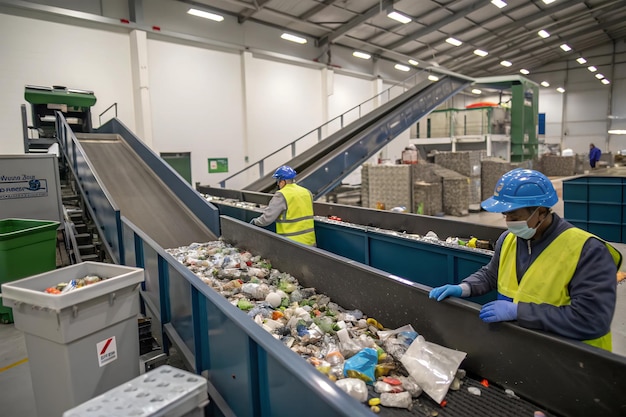
Construction Industry
In the construction industry, companies like Skanska have demonstrated the effectiveness of sustainable waste management. By implementing comprehensive recycling programs and repurposing materials, Skanska has significantly reduced its environmental footprint and achieved cost savings. The company’s commitment to sustainability extends beyond individual projects, influencing industry standards and encouraging other companies to adopt similar practices.
Skanska’s success lies in its holistic approach to waste management, which integrates sustainability into every phase of construction. By collaborating with suppliers, clients, and local communities, the company has created a network of stakeholders committed to reducing waste and promoting environmental responsibility. This collaborative approach has not only enhanced Skanska’s reputation as a sustainability leader but also contributed to its long-term success.
Manufacturing Sector
Manufacturers like Toyota have long been leaders in sustainable waste management. Toyota’s zero-waste-to-landfill initiative has led to innovative practices such as using waste materials to generate energy and create new products, further demonstrating the economic and environmental benefits of sustainable waste management. The company’s focus on continuous improvement and innovation has enabled it to achieve significant waste reduction and cost savings.
Toyota’s approach to waste management emphasizes the importance of employee involvement and cross-functional collaboration. By empowering employees to identify waste reduction opportunities and implement innovative solutions, the company has created a culture of sustainability that drives continuous improvement. This commitment to waste management not only enhances operational efficiency but also aligns with Toyota’s broader mission to contribute to a sustainable society.
Challenges and Solutions
While the benefits of sustainable waste management are clear, businesses may face challenges in implementation. Common challenges include:
- Lack of awareness or understanding among employees
- Limited access to recycling facilities
- Initial costs of setting up waste management programs
To overcome these challenges, businesses should:
- Invest in employee training and education
- Collaborate with local governments and organizations to improve access to recycling facilities
- Explore financial incentives and grants to offset initial costs
Additionally, businesses can leverage technology to enhance waste management efforts. By adopting digital tools for waste tracking, monitoring, and reporting, companies can streamline operations and improve data accuracy. This not only facilitates compliance with regulations but also provides valuable insights for optimizing waste reduction strategies.
Moreover, businesses can benefit from building partnerships with industry associations and sustainability networks. By sharing best practices and learning from others, companies can overcome common challenges and accelerate their sustainability journey. These collaborations can also lead to innovative solutions and new opportunities for waste reduction and resource recovery.
Building a Cleaner Future: Ivan’s Site Services and Sustainable Waste Management
When it comes to implementing real, on-the-ground sustainable waste solutions, Ivan’s Site Services leads the way in El Paso. Specializing in construction debris removal, roll-off dumpsters, and recycling logistics, Ivan’s Site Services is committed to helping job sites reduce their environmental footprint through practical, efficient, and eco-conscious services. Their dedication to responsible disposal and material recovery supports contractors, developers, and site managers in achieving their sustainability goals while maintaining clean, compliant, and safe work environments.
Ivan’s Site Services takes a strategic approach to recycling and waste separation, making it easy for clients to reduce landfill contributions. Whether you’re managing a demolition site or a large-scale commercial build, they provide the equipment, bins, and guidance to ensure recyclable materials like concrete, metal, and wood are processed properly. Their team also conducts waste evaluations to help businesses adopt better waste stream practices—reducing costs while promoting environmental stewardship on every project.
What makes Ivan’s Site Services essential in today’s sustainability-focused market is their blend of convenience and commitment. With dependable pickup schedules, flexible container sizes, and an emphasis on customer education, they simplify the transition to greener job site operations. As more companies aim to align with environmental regulations and green building certifications, Ivan’s Site Services provides the tools and partnership to make that goal a reality—right here in West Texas.
👉 Looking to deepen your understanding of job site recycling? Check out the U.S. EPA’s guide to Construction and Demolition Debris Management at https://www.epa.gov/smm/sustainable-management-construction-and-demolition-materials for expert insights into sustainable practices across industries.
Conclusion
Sustainable waste management is not just an environmental responsibility but a strategic business decision. By implementing effective waste reduction strategies and embracing sustainable waste management solutions, businesses can contribute to a healthier planet while realizing economic benefits. Every job site has the potential to make a positive impact, and it starts with understanding the importance of recycling and sustainable practices. Let’s work together to build a more sustainable future.
In conclusion, businesses that prioritize sustainable waste management not only protect the environment but also position themselves as leaders in their industries. By fostering a culture of sustainability, companies can engage employees, enhance brand reputation, and drive innovation. As we face increasing environmental challenges, the role of businesses in promoting sustainable waste management is more critical than ever. Together, we can create a future where waste is seen as a resource, and sustainability is at the heart of every business decision.


